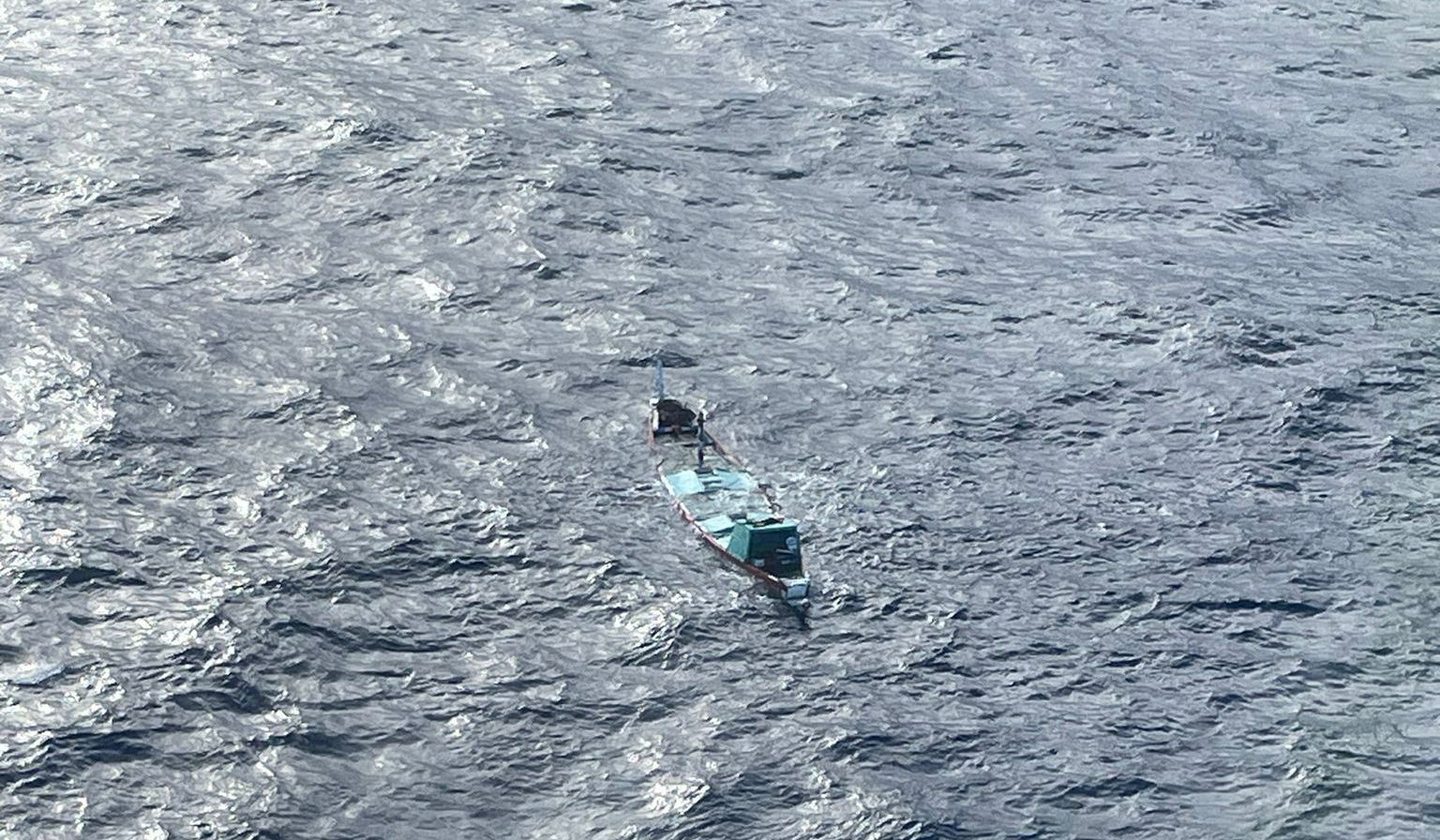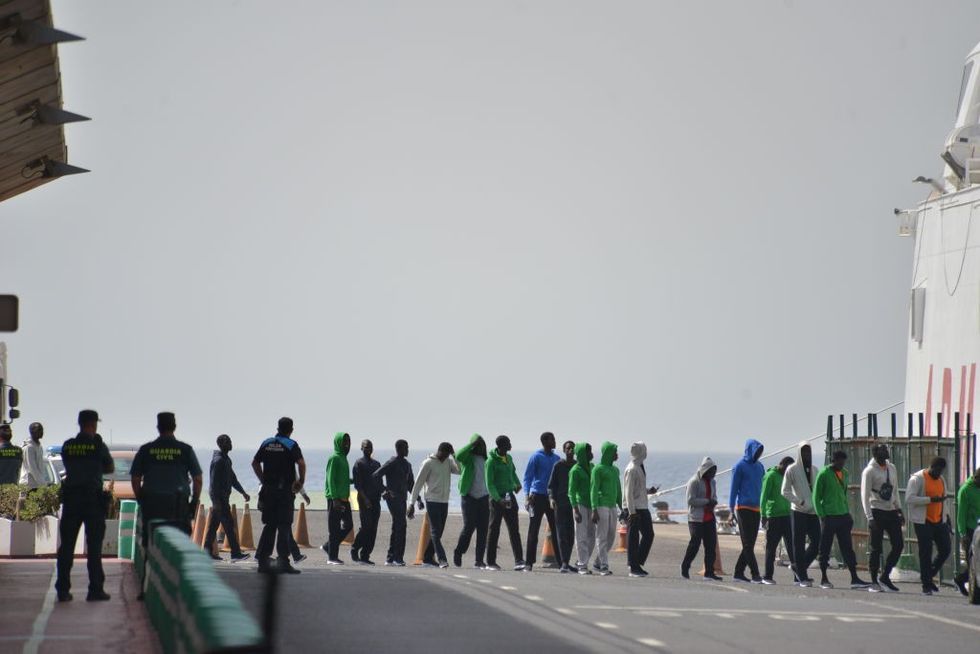The boat left the Senegalese city of Mbour nine days before it sank
Don't Miss
Most Read
Trending on GB News
At least 51 migrants have died after their boat capsized 60 miles south of the Canary island of El Hierro.
Nine people were rescued from the craft after a passing bulk carrier alerted Spain’s Salvamento Marítimo rescue service.
A fast boat and a helicopter were dispatched by the service from its base in Tenerife.
It is believed the nine people rescued were from sub-Saharan Africa, as the vessel had left the Senegalese city of Mbour nine days before it sank.

The vessel was discovered capsized
Salvamento Marítimo
A Salvamento Marítimo spokesperson said: “The helicopter arrived, rescued nine people from the semi-submerged boat, and took them to El Hierro airport, where they were seen by medical staff.”
“The rescue boat confirmed that there was no one else in the boat and returned to base."
Spain’s Guardia Civil police force had told Salvamento Marítimo that 60 people were reported to have been on the boat when it left Africa.
The nine survivors are now being treated in El Hierro airport by members of the Red Cross.
LATEST DEVELOPMENTS

Migrants Arriving In El Hierro (stock pic)
Getty
Record numbers attempted the perilous Atlantic crossing last year after other routes to Europe across the Sahara Desert and Mediterranean Sea became more heavily policed.
Over 39,900 people reached the Canary Islands from West Africa, an all-time high, according to Spain's interior ministry. Most were from Senegal or neighbouring Gambia.
However, rickety boats, motor failures and bad weather are just a few of the dangers that too often lead to disaster.
At least 6,000 people are believed to have died on this route in 2023, according to migrant rights group Caminando Fronteras (Walking Borders). Others likely left and were lost without trace.
It comes as EU interior ministers are meeting in Ghent, Belgium, for a two-day conference to discuss the implementation of the long-awaited European Pact on Migration and Asylum, which was devised in response to Europe’s 2015 migration crisis.
The pact was drafted after 1.3 million people, mostly Syrian refugees, crossed into the EU.
It was been denounced by more than 160 human rights organisations, including Amnesty International, Human Rights Watch and the International Rescue Committee, which argue the deal will lead to greater suffering, less protection and more rights violations.









